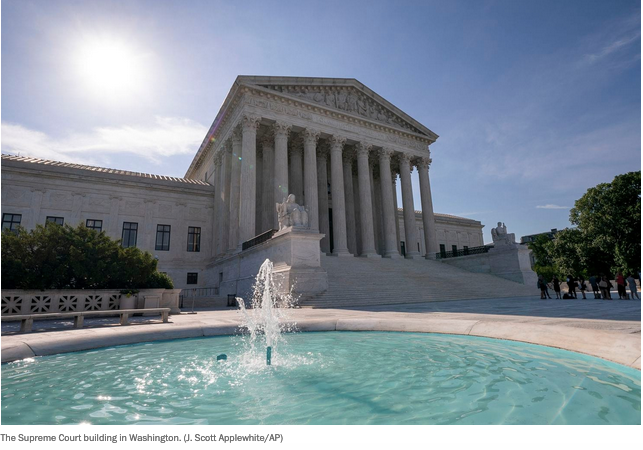The Supreme Court on Monday reaffirmed the long-established precedent that allows both state and federal authorities to prosecute a person for the same offense, a ruling that has implications for President Trump’s pardon powers.
The 7 to 2 ruling rejected arguments that allowing subsequent prosecutions violates the double jeopardy clause in the Bill of Rights, which prohibits more than one prosecution or punishment for the same offense.
Justice Samuel Alito Jr. wrote for the majority; Justices Ruth Bader Ginsburg and Neil M. Gorsuch dissented.
Since the 1850s, the court has allowed an exception to the Constitution’s double-jeopardy prohibition on the theory that the federal and state governments are separate constitutional actors with their own sovereign authority.
Alito said that the evidence mounted by challengers that the pratice departs from the founding-era understanding of the Double Jeopardy Clause is “feeble; pointing the other way are the Clause’s text, other historical evidence, and 170 years of precedent.”




